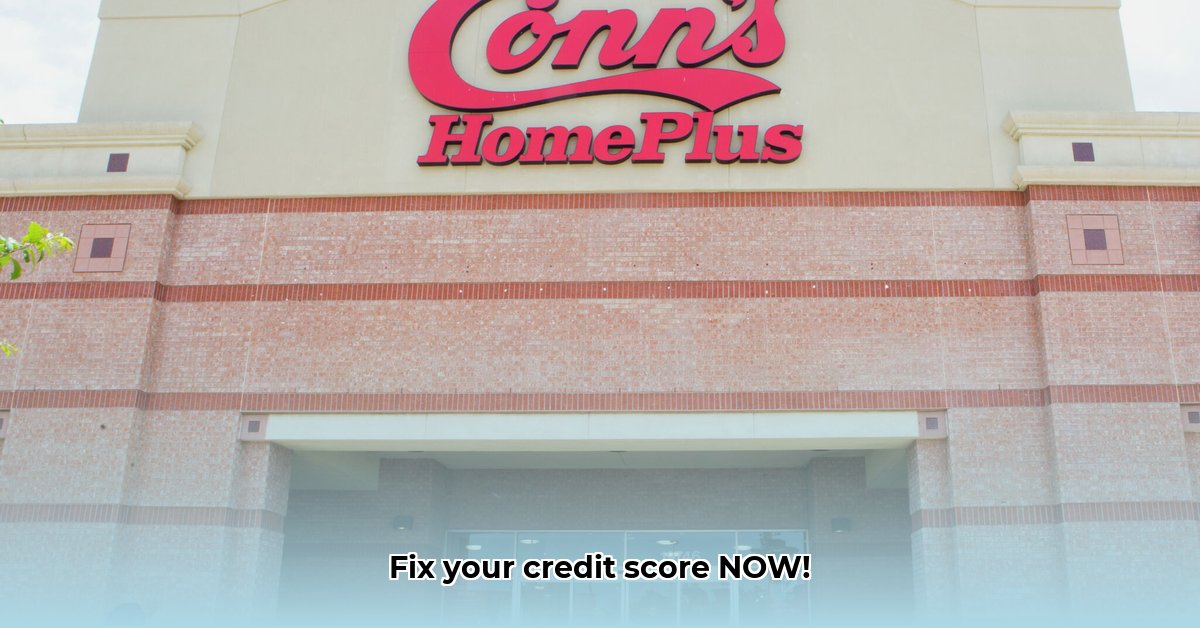
Understanding Conn's Charge-Offs: What It Means for You
Facing a Conn's charge-off can be stressful, but understanding what it is and its impact is the first step towards resolving the issue. A Conn's charge-off means the retailer has written off your debt as uncollectible. This negative mark significantly impacts your credit score, making it harder to secure loans, rent an apartment, or even get a job in some cases. How long this negative mark stays on your credit report depends on various factors; however, it typically remains for seven years. But don't despair—there are actionable steps you can take. Did you know that proactive credit repair can significantly shorten this timeline? For more information on credit repair, check out this helpful resource: credit repair tips.
Assessing Your Situation: Gathering the Necessary Information
Before contacting Conn's, gather crucial information to maximize the effectiveness of your negotiation. This organized approach will significantly aid in a smoother and more productive conversation. You'll need:
- The outstanding balance: The exact amount you owe Conn's.
- The charge-off date: When did Conn's mark your debt as uncollectible? This is key in determining negotiation strategies.
- Previous communication: Have you contacted Conn's previously? If so, document all communications (emails, letters, and notes from phone calls). This history provides crucial context for your current efforts.
This detailed information empowers you to approach Conn's with confidence and a clear understanding of your situation.
Negotiating with Conn's: Strategies for a Successful Resolution
Now, it's time to contact Conn's. Remember to be polite, professional, yet assertive. Your goal is to negotiate a settlement, which could involve full payment or a partial payment agreement. Meticulous documentation is critical throughout this process. Record every communication: emails, letters, and phone calls (including dates, times, and names of representatives).
Step-by-Step Negotiation Guide:
- Compose a Professional Letter (or Email): Write a clear, concise letter or email outlining your intent to settle the debt. Propose a payment plan if a lump-sum payment isn't feasible. (Be realistic but firm in your proposal.)
- Make the Phone Call: After sending your letter, follow up with a phone call. Be prepared to discuss your proposed payment plan or settlement. Record all details of the conversation.
- Strategic Negotiation: Conn's may counter with a different offer. Be prepared to negotiate, understanding your limits, but aiming for the best possible outcome. Remember, a partial payment settlement is often better than no resolution at all.
Potential Settlement Outcomes:
| Outcome | Advantages | Disadvantages |
|---|---|---|
| Full Payment | Completely removes the negative mark from your credit report. Ideal for long-term credit health. | Requires substantial upfront payment. |
| Partial Payment Settlement | Less expensive than full payment; can improve your standing with Conn's. | Negative mark may remain, often noted as "settled for less," potentially impacting your credit score, though less severely than the original charge-off. |
Remember, a "pay-for-delete" agreement, where Conn's removes the negative mark in exchange for payment, is a desirable outcome; however, it is not always guaranteed.
Addressing Inaccurate Reporting: Protecting Your Rights Under the FCRA
Review your credit reports from Equifax, Experian, and TransUnion. The Fair Credit Reporting Act (FCRA) grants you the right to dispute inaccurate information. If the account details are incorrect (balance, dates, etc.), follow these steps:
- Thorough Review: Scrutinize your credit reports for any inaccuracies related to the Conn's charge-off.
- Prepare a Dispute Letter: Write formal letters to each credit bureau detailing the inaccuracies and providing supporting evidence. (Certified mail with return receipt requested is recommended.)
- Submit the Dispute: Send your letters via certified mail.
- Follow Up: Monitor the progress of your dispute and follow up if necessary.
Monitoring Your Credit Report: Staying Informed
Regularly monitor your credit reports (using free services available online) to track your progress and identify any further issues. Early detection of any discrepancies is crucial for prompt resolution.
Legal Protection: Understanding the Fair Credit Reporting Act (FCRA)
The FCRA protects your rights as a consumer. If you encounter unfair debt collection practices, or if your rights are violated, seek legal counsel from an attorney specializing in consumer rights.
Long-Term Credit Repair: Building a Better Financial Future
Resolving the Conn's charge-off is a significant step, but rebuilding your credit is a long-term process. Focus on responsible financial habits:
- Pay bills on time.
- Keep credit utilization low (ideally under 30%).
- Diversify your credit mix (blend of credit cards and loans).
With consistent effort and a strategic approach, you can successfully navigate this challenging situation and rebuild your credit score. Remember, this is achievable with patience and persistence.